This article was medically reviewed by Sarah Gehrke, RN, MS. Sarah Gehrke is a Registered Nurse and Licensed Massage Therapist in Texas. Sarah has over 10 years of experience teaching and practicing phlebotomy and intravenous (IV) therapy using physical, psychological, and emotional support. She received her Massage Therapist License from the Amarillo Massage Therapy Institute in 2008 and a M.S. in Nursing from the University of Phoenix in 2013.
This article has been viewed 581,007 times.
Sperm donation typically involves the provision of sperm by a healthy male to a sperm bank or fertility clinic for the purpose of artificially inseminating a woman who is not his sexual partner. Most recipients of donor sperm are heterosexual couples dealing with male infertility, lesbian couples, and single women. Sperm donors get paid for their samples, but there are numerous qualifications to meet before a sperm bank or fertility clinic accepts the donor as a client.
Steps
Pre-qualifying for Sperm Donation
-
1Be younger than 40. Although sperm banks and fertility clinics all have slightly different policies in terms of sperm donor qualifications, almost all require that you be younger than 40 years old.[1] Some males produce completely healthy sperm beyond the age of 40, but many have lower sperm counts and reduced sperm motility, which makes it less likely to lead to impregnation. Lifestyle, diet and overall health are sometimes better indicators of sperm health than chronological age.
- The age limit for some facilities can be as low as 35 years.
- At the other end of the spectrum, the minimum age requirement is usually either 19 or 20 years.
- Male sperm donors are usually paid between $50-100 USD per viable sample.
-
2Apply only if you're at least average height. In addition to age, there are height restrictions of who can donate sperm in the U.S. and many other countries. Shorter people don't have more issues with their sperm compared to tall people, but the recipients of the sperm almost always request taller donors, so the sperm banks and fertility clinic comply with their wishes. Many facilities require that their sperm donors be between 5'10" and 6'2", although others maintain that you must be at least 5'7" to qualify.[2] [3]
- Short height is often a function of genetics, although environmental factors (poor nutrition as a child, infections, exposure to toxins) can play a significant role also.
- Taller children tend to fit in better among their peers (assuming they're not giants) and eventually have a higher probability of success with dating, marriage and mating.[4]
Advertisement -
3Realize that education often matters. Obviously many people who don't attend university or college are highly intelligent or even geniuses, but almost all sperm banks and fertility clinics require proof of enrollment or completion of post-secondary education.[5] In fact, some sperm banks only accept donors who are graduates of Ivy League schools and then market that information to justify their higher costs. Regardless, if you are not formerly educated in some capacity, there's virtually no chance of being accepted as a sperm donor.
- Perhaps interestingly, university and college grades or performance almost never matter to sperm banks or fertility clinics (nor other achievements that require intelligence), it's just the admission and/or completion of a program that matter.
- Between 50-80% percent of sperm within a sample of ejaculate do not survive the freezing process at sperm banks and fertility clinics.
-
4Be prepared to make a commitment. Almost no sperm banks or fertility clinics accept donors who have the intent of going through the process only once. Instead, most want a commitment in terms of frequency of visits (weekly or twice-weekly) and time (1-year contracts are common).[6] Most companies feel that commitment to their timetables represents stability, plus they have the opportunity to monitor and compare sperm samples for quality and evidence of poor health or bad lifestyle changes. For example, blood and sperm samples are routinely screened for illicit drug use, which can alter and damage sperm.
- All sorts of hair and eye colors are encouraged, with the possible exception of red hair at some clinics. It appears that people who buy donated sperm prefer red hair the least.
- Because white people tend to use donated sperm the most, white sperm donors represent the majority. However, in some geographic markets, Africans and Asians may be in high demand.[7]
-
5Be healthy. Sperm banks and fertility clinics screen for health issues and sexual preference, or at least sexual practices. Males who have hereditary diseases are excluded, as are those with chronic debilitating diseases (such as diabetes, cancer or chronic fatigue), due to the negative impact on sperm production and motility. You also cannot have any exposure to the following infectious diseases: HIV, hepatitis B and C, HTLV, syphilis, genital herpes and/or genital warts.[8]
- Blood samples are routinely taken for examination prior to acceptance.
- At sperm banks, sperm health is often defined as a sperm count of at least 70 million/ml, at least 70% motility and at least 60% normal in appearance (morphology).
- As a general rule, sperm health in sperm donors needs to be better than average because some sperm die or lose their motility in the freezing and thawing processes.
- Common hereditary diseases include cystic fibrosis, sickle cell anemia, hemophilia and inflammatory arthritis.
Donating Sperm
-
1Pass the screening and interview process first. After meeting the initial requirements of age, height, health and sexual practices, sperm donor candidates then progress to the screening and interview process in order to substantiate their claims and get a better feel for their personality and willingness to make a commitment. If you haven't already filled one out, you'll need to complete a thorough medical history questionnaire of not just your own, but also your immediate family. The questionnaire is followed sometimes by a personal interview and then blood and semen samples. If accepted a legally binding contract has to be signed.
- People who are adopted are often disqualified from being a sperm donor because their family history cannot be substantiated or verified.
- Mental health can also sometimes be an issue because some conditions, such as schizophrenia and bipolar disorder, may have genetic links.
- Sometimes multiple samples are needed to best establish sperm count and motility rates.
-
2Make an effort to provide a good sample. Because your sperm count, motility and overall morphology is a crucial aspect of being accepted as a sperm donor, take it seriously and try to give the best sample you can. Donors are typically asked to abstain from ejaculation (from sex or masturbation) for at least 2 days (sometimes up to 5 days) before giving a sperm sample in order to get the highest counts possible. Prior to giving a sperm sample, get a good night's sleep, avoid alcohol and cigarette smoke, drink plenty of water and eat a nutritious meal.
- Supplements that may help improve the health of your sperm include zinc, selenium, folic acid, vitamin E, vitamin C, coQ10, and L-carnitine. Taking a combination of vitamin E, vitamin C, and coQ10 may be especially helpful for increasing your sperm count.[9]
- Most sperm banks and fertility clinics ask for weekly sperm deposits because it can take as many as 8 inseminations for a person to become pregnant.
-
3Learn some tips to ejaculate while in clinical settings. To ensure that it's your sperm sample, most sperm banks and fertility clinics require you to ejaculate while on their premises. You will be in a private room alone to provide your sample. Clinical settings are not known for their sexual atmosphere, so you'll have to learn to control your feelings of nervousness / awkwardness and rely more on your imagination. Most facilities provide pornographic material to increase arousal, but the increasing usage of porn in the U.S. has dulled many men to its effects.[10] Furthermore, you can't use any lubricants (even saliva or water) to masturbate due to their potentially negative effects on sperm health. As such, rely on vivid sexual imagery in your own head and consider bringing to the clinic a device that stimulates your genitals in some capacity, such as vibrator.
- After the initial STD screening, sperm samples are quarantined and typically frozen for 6 months. Then, before use, the sperm sample is tested again to ensure safety from pathogens.
- Sperm banks tend to be very protective of its donors' rights and confidentiality, and they have no legal rights or responsibilities for kids conceived from their sperm.
Expert Q&A
Did you know you can get expert answers for this article?
Unlock expert answers by supporting wikiHow
-
QuestionDo I have to ejaculate in the presence of anyone?
 Sarah Gehrke, RN, MSSarah Gehrke is a Registered Nurse and Licensed Massage Therapist in Texas. Sarah has over 10 years of experience teaching and practicing phlebotomy and intravenous (IV) therapy using physical, psychological, and emotional support. She received her Massage Therapist License from the Amarillo Massage Therapy Institute in 2008 and a M.S. in Nursing from the University of Phoenix in 2013.
Sarah Gehrke, RN, MSSarah Gehrke is a Registered Nurse and Licensed Massage Therapist in Texas. Sarah has over 10 years of experience teaching and practicing phlebotomy and intravenous (IV) therapy using physical, psychological, and emotional support. She received her Massage Therapist License from the Amarillo Massage Therapy Institute in 2008 and a M.S. in Nursing from the University of Phoenix in 2013.
Registered Nurse
-
QuestionWhat is the height requirement for donating sperm?
 Sarah Gehrke, RN, MSSarah Gehrke is a Registered Nurse and Licensed Massage Therapist in Texas. Sarah has over 10 years of experience teaching and practicing phlebotomy and intravenous (IV) therapy using physical, psychological, and emotional support. She received her Massage Therapist License from the Amarillo Massage Therapy Institute in 2008 and a M.S. in Nursing from the University of Phoenix in 2013.
Sarah Gehrke, RN, MSSarah Gehrke is a Registered Nurse and Licensed Massage Therapist in Texas. Sarah has over 10 years of experience teaching and practicing phlebotomy and intravenous (IV) therapy using physical, psychological, and emotional support. She received her Massage Therapist License from the Amarillo Massage Therapy Institute in 2008 and a M.S. in Nursing from the University of Phoenix in 2013.
Registered Nurse
References
- ↑ https://www.thespermbankofca.org/content/how-qualify-sperm-donor
- ↑ http://www.spermbank.com/sperm-donor-faqs
- ↑ https://www.thespermbankofca.org/content/how-qualify-sperm-donor
- ↑ https://www.psychologytoday.com/blog/fulfillment-any-age/201306/why-women-want-tall-men
- ↑ http://www.spermbank.com/sperm-donor-faqs
- ↑ https://www.thespermbankofca.org/content/how-qualify-sperm-donor
- ↑ http://www.salon.com/2011/09/25/sex_cells_interview/
- ↑ https://www.thespermbankofca.org/content/how-qualify-sperm-donor
- ↑ https://www.ncbi.nlm.nih.gov/pmc/articles/PMC5203687/
About This Article
If you want to donate sperm, you most likely will need to be younger than 40, at least average in height, college-educated, and clear of hereditary or sexually transmitted diseases. As a part of the clinic's screening and interview process, you'll likely need to complete a thorough medical history questionnaire about yourself and your immediate family. Once you've been approved, make an effort to provide a good sperm sample by abstaining from ejaculation for at least 2 days. You should also make sure to drink lots of water, get good sleep, eat nutritious meals, and avoid smoke or alcohol. Keep in mind that you will probably go through the process more than once, since many clinics will want a weekly or biweekly commitment that spans over 1 year. For more tips from our Medical co-author, like how to comfortably donate sperm in a clinical setting, read on!






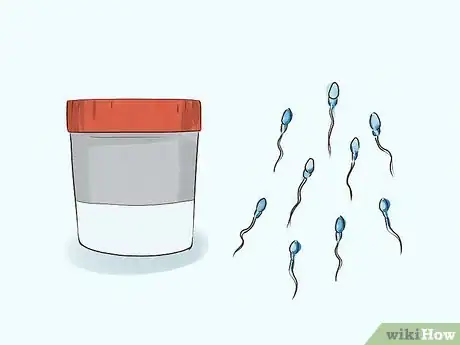






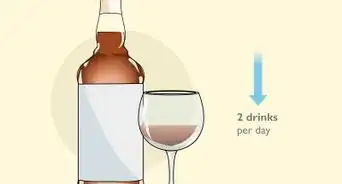
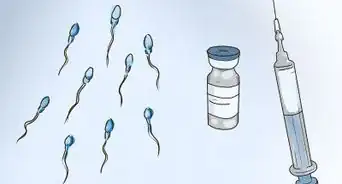

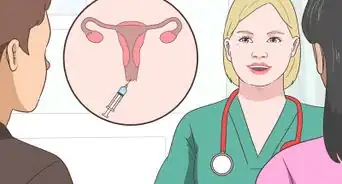
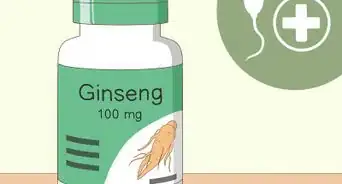

















































Medical Disclaimer
The content of this article is not intended to be a substitute for professional medical advice, examination, diagnosis, or treatment. You should always contact your doctor or other qualified healthcare professional before starting, changing, or stopping any kind of health treatment.
Read More...